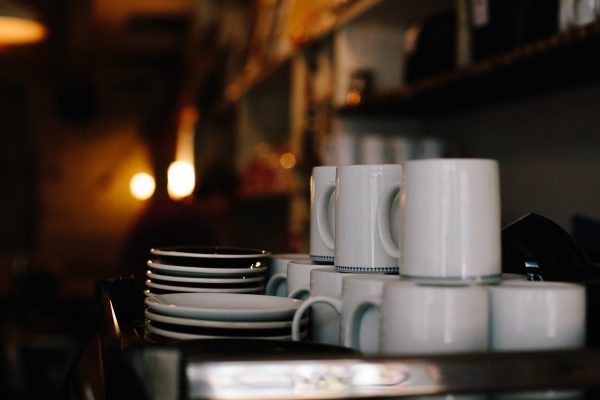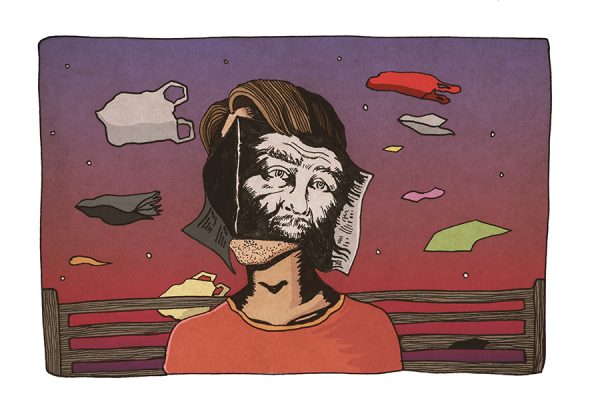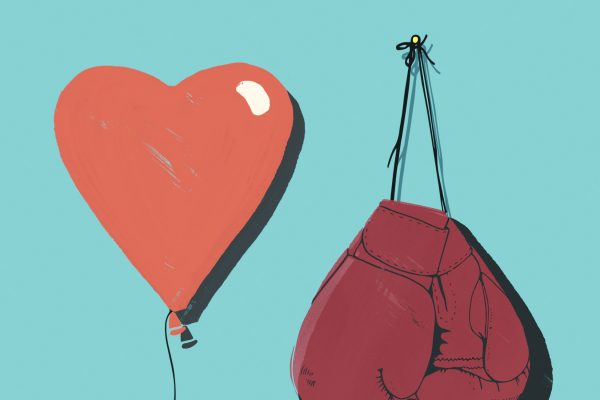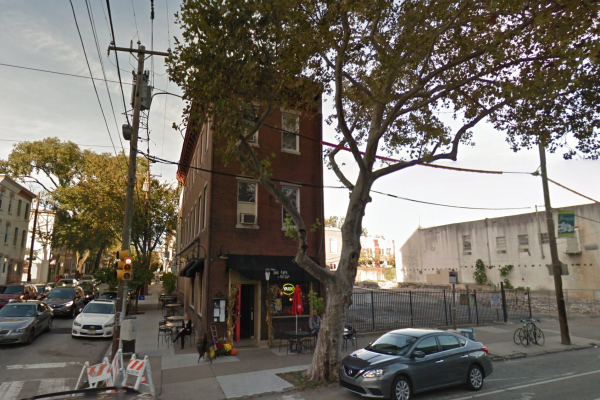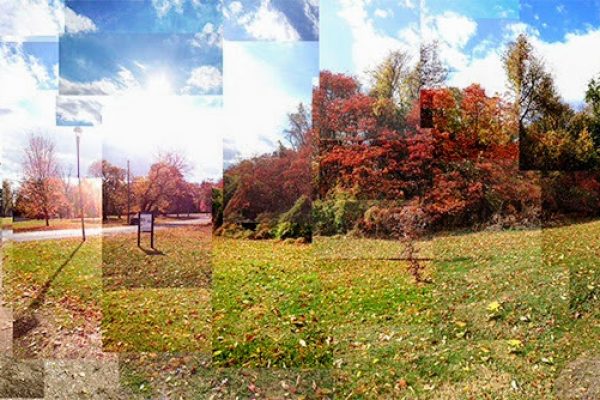John McDonough sat in his chair in his coffee shop on Fairmount off 20th trying to read his paper. At his age, even his body was distracting: his arms were permanently sore, his gut indisputably budging—even noisy—and his breath constantly on the verge of getting ahead of him. But his biggest distraction, as usual, was his mind.
It was a weekday, cold and rainy, and he was the only one in the coffee shop just then. He had been for about two hours or so, following the day’s morning rush, which was so busy that he had, partly because of his age, no time to do any more than flash customer after customer a denture-revealing smile as he lowered his wobbly hand with their drink. John’s ideal pace is more relaxed; his ideal customer stalls a minute to make small talk. The morning rush was never ideal.
But, just like every other day, the rush had come and gone, and now John was alone again, left to his thoughts, and unhappy. He was, in a word he knew the meaning of so well he cursed himself every time it entered his mind: lonely. He was used to being alone, not only here but in the rest of his adult life, having always lived alone and having excelled in a career that required long stretches of concentration and isolation. But that didn’t mean that he enjoyed it. After nearly 40 years of loyal service to his company, years over which his mind and body became what they were today, John tried to retire. He lasted only two months before accepting that idle life was too lonesome, that he needed to be doing something, something with people around, to occupy his time and his mind. Here, working at the coffee shop, it was worlds easier for him to be alert, to forget his loneliness, to hope that someone with a few minutes to kill might stroll in to kill those few minutes with him.
Today, though, was a difficult one. Partly because his arms were bothering him and partly because of the weather, but mostly because he was alone and knew he would remain so for most of the day. He rightly feared days like these because they left him to his thoughts, and those times, he knew, were the exact times when his mind was most destructive. That’s when he found himself unable to see the good in anything, when he questioned mistakes made in the years behind him, and the point of those ahead. Deeply familiar with his mind, John knew that these thoughts, like all others—and like all morning rushes—would pass. Over the years, he developed little tools and tricks, mental games and routines, small tasks spaced evenly through the day to keep himself occupied. But some days, like today, it was harder to keep his mind from turning in on itself.
It was at 11:30AM, right when John permitted himself to begin the newspaper’s Sudoku, when two young women stalled outside the shop’s doorway, one pulling out her phone while the other shook out her umbrella. From the look of it, they had some affiliation with the university. John, forgetting his problems in that one moment, was both relieved and nervous, and put on a smile betraying both. The girls opened the door, but partway through entering, they paused, seeing that it was only John there—the old man with the uncomfortable smile that wasn’t even trying not to pay attention to them. The first girl through turned back to the second and asked, “Do you want to try somewhere else?”
John would later criticize himself for what he was about to do. He criticized himself often. He hated himself for being anything but completely accommodating, which was bad for him in many ways, one of which being that he was sensitive to when someone was annoyed or uncomfortable. And yet, he didn’t want to be alone for another hour or so, so he called out to the girls, “Pretty icky out there, isn’t it?”
The first girl through looked back to the second, who in a moment John could sense was upset over something. The upset girl quickly adjusted her face and, with false politeness, and some part defiance towards the first girl, replied, “Supposed to be like this all day too.”
“Icky, yeah,” the first girl added.
“Warm coffee usually helps,” John said and readjusted his smile.
“Chai lattes too,” said the upset girl.
“It’s good that we have those—anything really,” he said, gesturing to the menu behind him. “I’m happy to answer any questions.”
“I’ll have the same thanks,” the first girl said without lifting her head.
John acknowledged and turned back. Once he did so, the first girl, not moving her body one inch, said, “She was being such a big bitch and you can’t go back there until she apologizes.”
“Shut up,” the upset girl replied.
“You know she’s back there laughing with Kelsey—she thinks you’re not going to say shit to her,” the first girl said, following with a laugh in that made John feel, as he would later reflect, yet be unable to figure out exactly why, like he himself was a bad person.
“Shut up. You stir shit up just because.”
The first girl rolled her eyes. “Anyways…” she said, ending the conversation. There was silence except for an ad on 98.1, which John switched to each day at 10 a.m., and the rain and cars outside. He was just a minute longer with the drinks before turning around, slowly, his hands wobbling both. The girls paid separately and silently.
When they were on their way out, the first girl called back to John, “Thank you!” with an air of finality, and then they walked into the rain and left him alone again to do his Sudoku, and then an hour and a half later eat a sandwich, and then an hour after that clean the espresso machine, and before he knew it it’d be time to close shop for the day, and the day would be passed and he’d have survived and be either stronger or weaker—he didn’t know which—for having endured another one alone like that.


